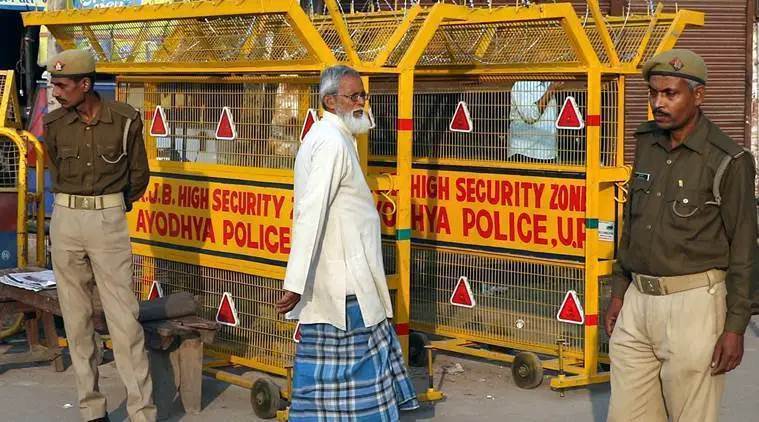Days after the All-India Muslim Personal Law Board (AIMPLB) decided to file a review petition challenging the Supreme Court verdict in the Ayodhya case, members of the UP Sunni Central Waqf Board are divided on the question of review petition.
Of the Sunni Board’s eight members, including chairman Zufar Faruqui, two on Wednesday said a review should be filed, while some were against it. There seemed unanimity over objecting to the court’s offer of 5 acres to build a mosque.

The Board is scheduled to meet in Lucknow on November 26 to discuss the issue.
Imran Mabood Khan, Allahabad High Court lawyer and Board member since 2001, alleged that Faruqui is under “pressure” due to cases filed against him, a charge Faruqui dismissed.
He told The Indian Express, “He (Faruqui) will not let the Board file a review petition because he fears a backlash from the government due to corruption… he transferred Waqf properties illegally.”
Denying any wrongdoing and being under pressure, Faruqui said, “So many people are saying a review petition should not be filed. Are they all under pressure? The recent cases against me are political (in nature) and have nothing to do with this case. If I was under pressure, I would have filed withdrawal application (earlier).”
ExplainedCases against Board chairman
Sunni Waqf Board chairman Zufar Faruqui has been named in two cases, lodged in August and September this year in Rampur, along with others. The first FIR on August 19, lodged at Azim Nagar police station, is regarding alleged usurping of around 86 bighas classified as Enemy Property. The FIR names nine people in all. The second FIR, at Kotwali police station on September 12, names Faruqui and others for allegedly assaulting complainant Naseema Khatoon’s husband and forcibly evicting them from their house in Rampur.
About the court’s offer to give the Muslim side 5 acres to build a mosque, Mabood said, “It is merely a distraction. This will set a bad precedent. The Muslim side should reject the offer.”
Story continues below this ad
About the review, he said, “If AIMPLB has said a review petition will be filed, the Sunni Waqf Board should support it. The review petition may not stand in court, but must be filed.”
Abdul Razzaque Khan, a lawyer at Lucknow bench of Allahabad HC and Board member since 2003, reiterated Mabood’s stance on the verdict. On review petition, he said, “Since the verdict is not fair, a review should be filed. It is part of the legal process. It is the only way to tell the world that what happened was not fair.”
About the offer of land, he said, “Land for a mosque can’t be traded. The offer should be rejected.” He said he will attend the November 26 meeting and express his views.
Abrar Ahmed, Samajwadi Party MLA and Board member, said he will attend the meeting. “We respect the court’s decision, but I feel it was unfair,” he said. On the offer of 5 acres, he said, “A mosque can’t be built on donated land. The offer should be rejected.”
Ahmed refused to comment the question of review plea.
Story continues below this ad
Another Board member, who did not want to be named, said the verdict should be accepted and a review petition should not be filed.

 The Board is scheduled to meet in Lucknow on November 26 to discuss the issue.
The Board is scheduled to meet in Lucknow on November 26 to discuss the issue.






